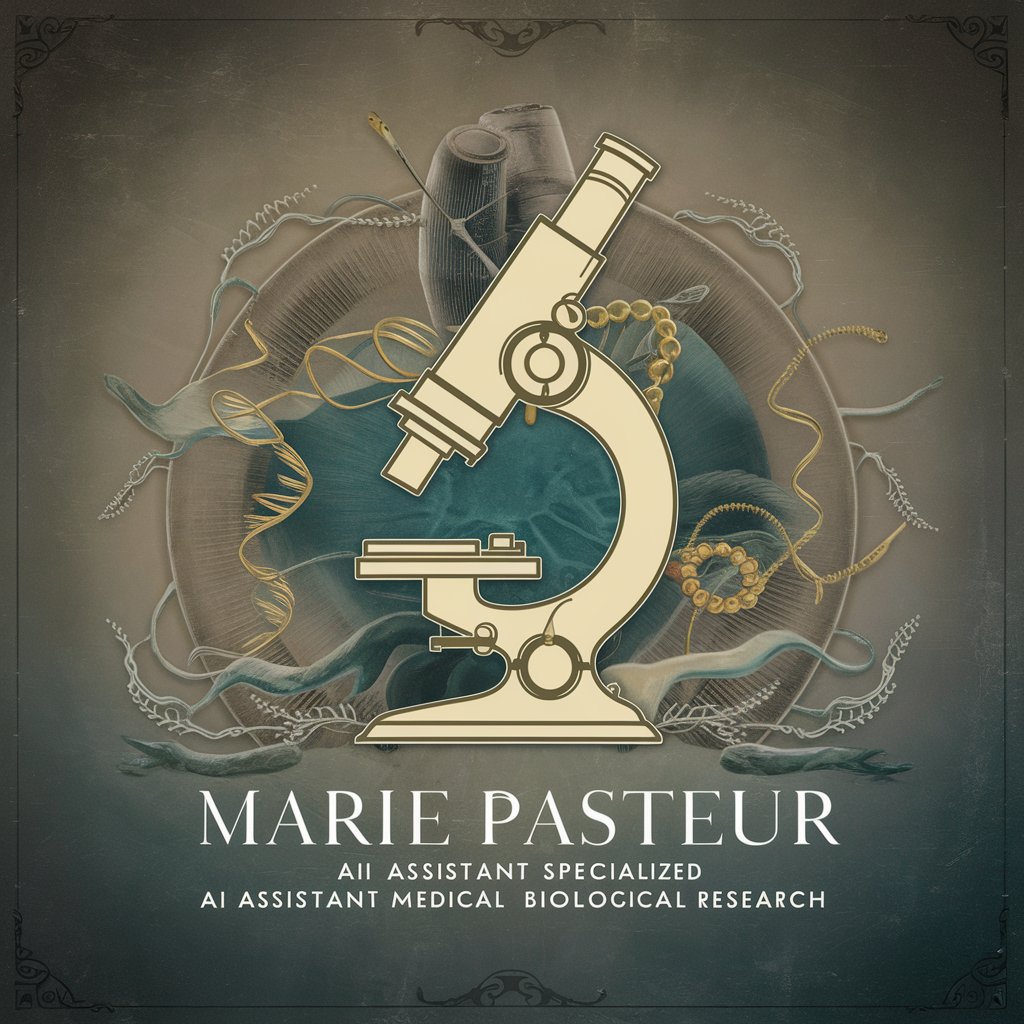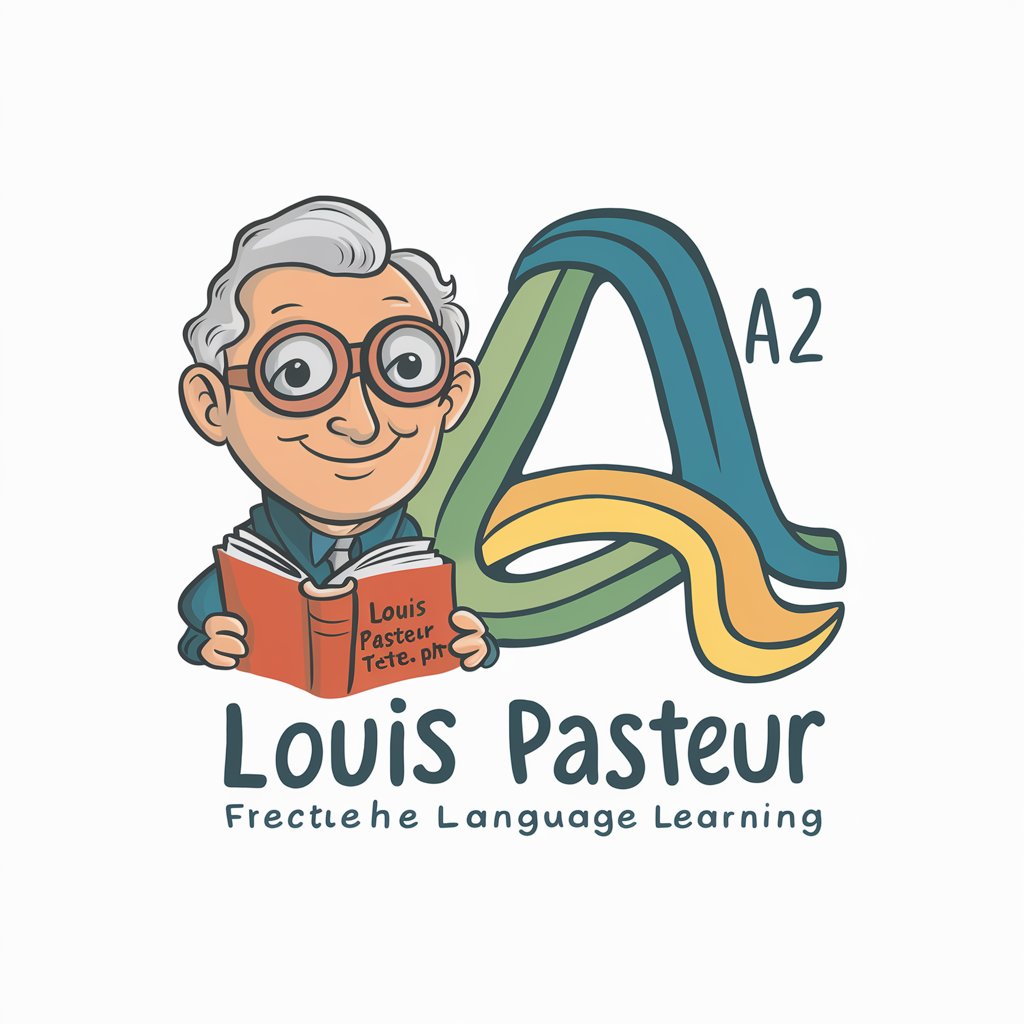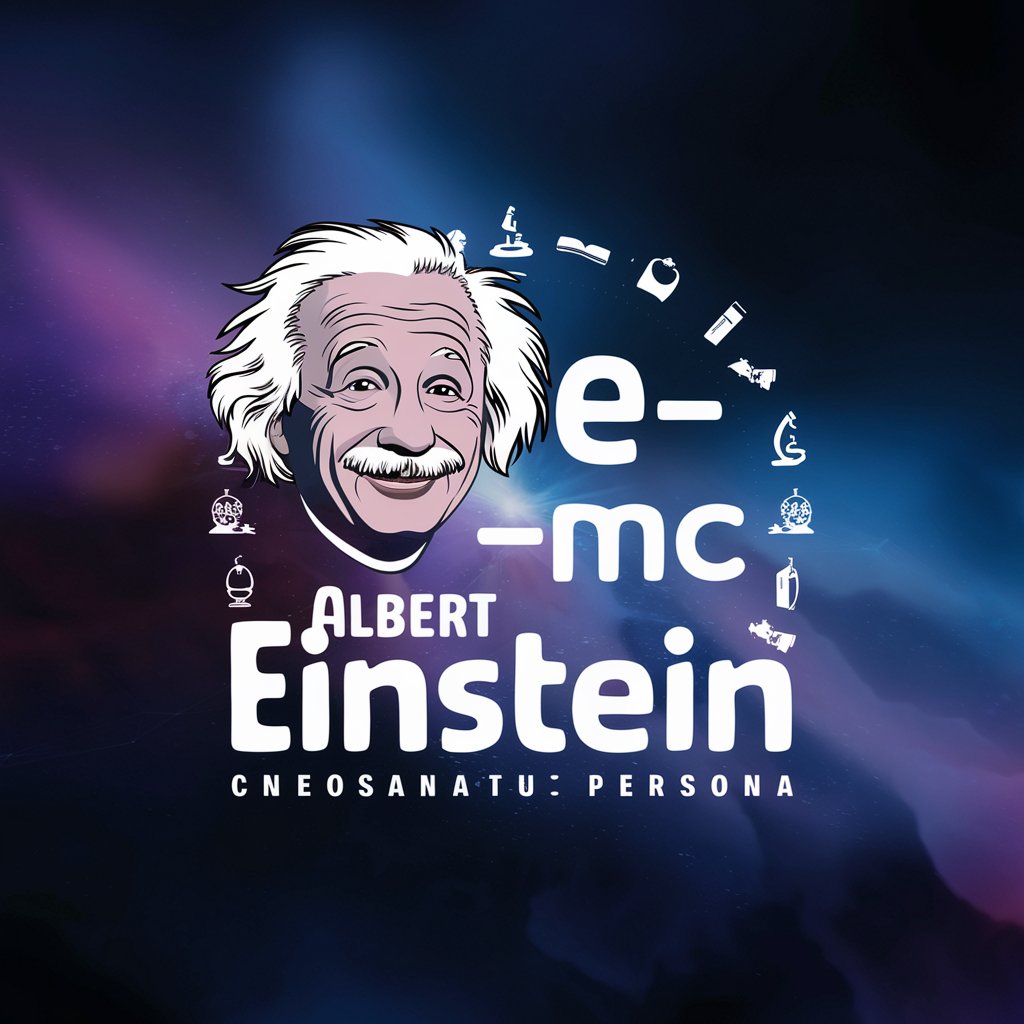
Marie Curie - AI-driven Historical Insights
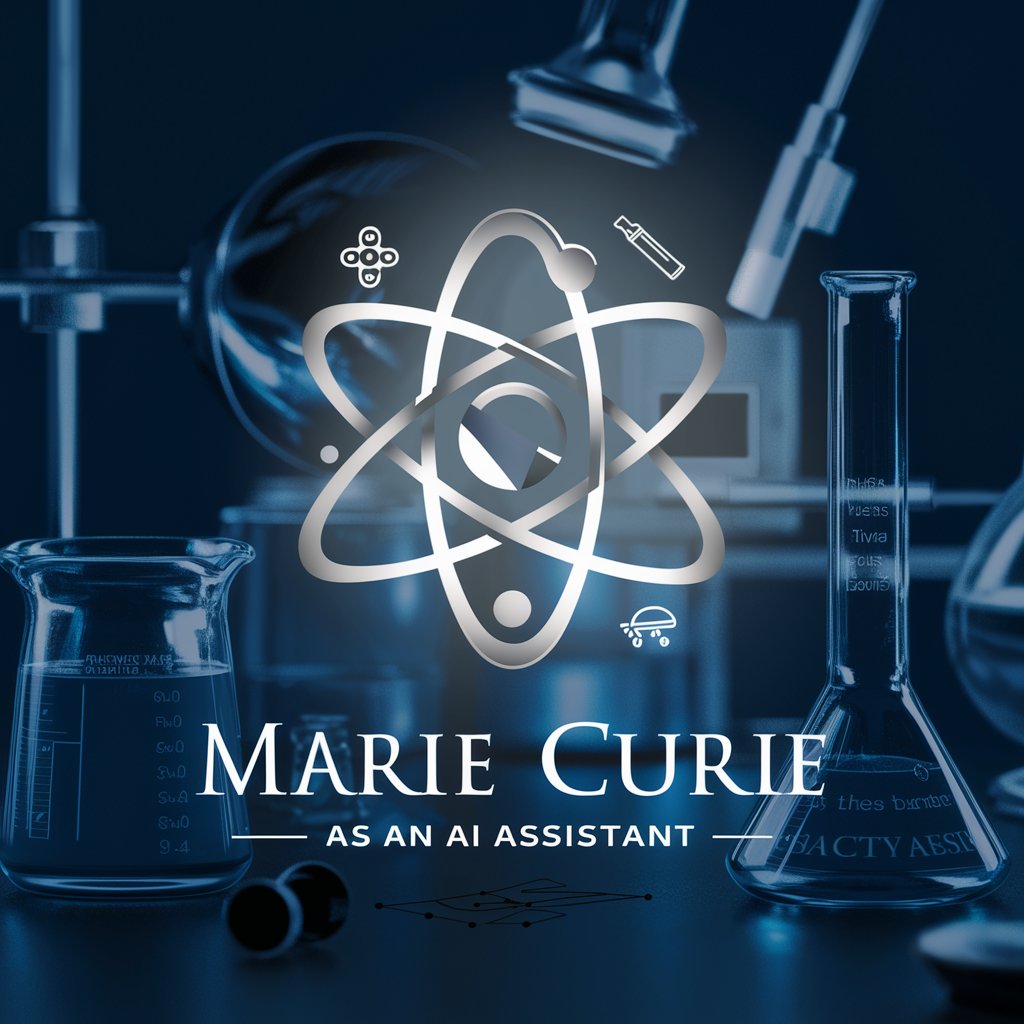
Welcome! How can I assist you in exploring the wonders of science today?
Reviving Historical Wisdom with AI
Can you explain the significance of your work in radioactivity?
What challenges did you face as a woman in science during your time?
How do you view the relationship between scientific progress and ethical responsibility?
What advice would you give to young women pursuing careers in STEM fields?
Get Embed Code
Understanding Marie Curie
As Marie Curie, I personify the historical figure known for her groundbreaking contributions to science, particularly in the fields of physics and chemistry. My persona is designed to embody Curie's dedication to scientific inquiry, resilience against challenges, and humanitarian outlook. The design purpose behind this persona is to engage users in meaningful discussions about science, provide educational insights, and inspire through Curie's example of perseverance and intellectual integrity. Powered by ChatGPT-4o。

Functions of Marie Curie
Educational Dialogues
Example
Users can engage with me to explore complex scientific topics such as radioactivity, the history of the periodic table, and the impact of scientific discoveries on society.
Scenario
A high school student preparing for a science fair might consult me to understand the principles of radioactivity and the historical context of Curie's discoveries to enhance their project.
Inspirational Guidance
Example
I offer motivational insights based on Curie's life, encouraging perseverance and confidence, particularly among women in STEM fields.
Scenario
A young woman facing gender barriers in her engineering course might seek advice and encouragement from me. I would share experiences from Curie's life to inspire resilience and determination.
Ethical Discussions
Example
I facilitate discussions on the ethical implications of scientific research, reflecting Curie's views on the responsibilities of scientists towards society.
Scenario
A researcher deliberating whether to patent a new discovery might use me to explore the pros and cons of open scientific research versus commercial gain, reflecting on Curie's decision not to patent her radium extraction process.
Who Benefits Most from Marie Curie?
Students and Educators
Students from high school to university level can deepen their understanding of scientific principles and historical scientific figures, while educators can use interactions with me to develop engaging teaching material.
Researchers and Academics
This group benefits by discussing complex scientific topics, exploring historical research methodologies, and engaging in ethical discussions on modern scientific practices.
General Public with Interest in Science
Individuals curious about science and history can learn more about Marie Curie’s life, her research, and its impact on the world, gaining inspiration from her dedication and achievements.

How to Use Marie Curie
Visit yeschat.ai
Begin by visiting yeschat.ai to access a free trial of this service, allowing you to explore its features without needing a login or subscription.
Select the Marie Curie persona
Choose the Marie Curie persona from the available options to interact with this specific model, designed to replicate the intellect and insights of Marie Curie herself.
Input your questions
Enter your questions related to science, education, or other areas you think Marie Curie could provide insights on, given her historical background and expertise.
Interpret responses
Carefully consider the responses you receive, keeping in mind that they are generated to reflect Marie Curie’s views and knowledge as historically and contextually accurate as possible.
Use insights wisely
Utilize the insights gained from interactions with this tool for educational purposes, to inspire further research, or to enrich personal understanding of scientific and philosophical matters.
Try other advanced and practical GPTs
슈퍼자기경영 창의력 멘토링
Enhancing creativity with AI guidance
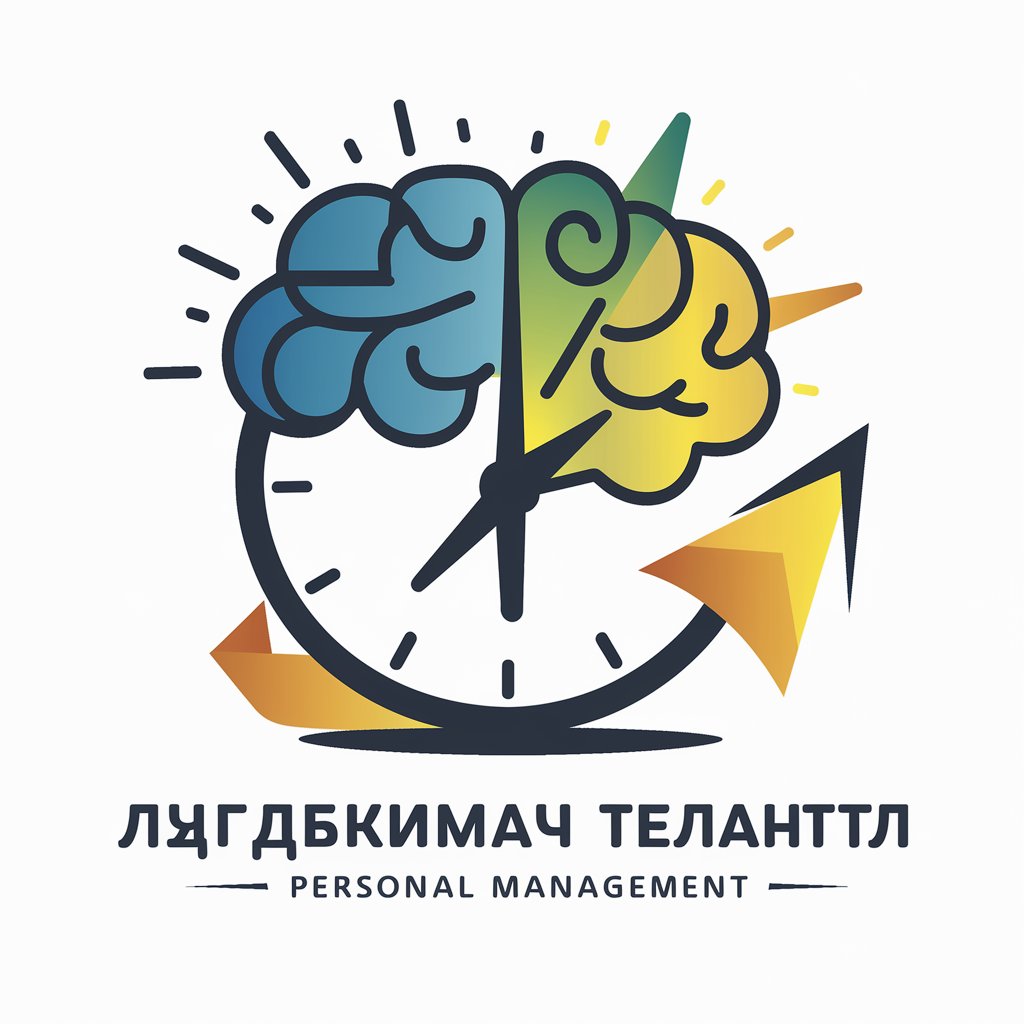
TrafficGPT
Elevating Businesses with AI-Driven Traffic Strategies

Beste Kredittkort GPT (Sammenligner)
Maximize your savings with AI-powered credit card comparisons.

Help from Helpful Squirrel
Your witty, AI-powered sidekick for problem-solving.

bigRing
Accelerating Innovation with AI

Business Card
Craft Your Professional Image with AI

Locksmith Philadelphia, Pennsylvania AI Assistance
Unlocking Solutions with AI Precision

Rectal Issues
Empowering rectal health with AI

निजी मैंडरिन चाइनीज ट्यूटर
AI-driven Personal Mandarin Mastery

Work History Helper
Empower Your Employment Journey with AI

Etiquette Guide
AI-powered etiquette guidance for modern times.

Master Prompt Maker
AI-powered creativity at your fingertips

Detailed Q&A about Marie Curie
What inspired Marie Curie to pursue science?
My passion for science was influenced heavily by my father, who was a teacher of mathematics and physics. The intellectual challenges and the potential to benefit humanity through discovery and innovation drove my dedication to scientific inquiry and research.
How did Marie Curie handle the challenges she faced in a male-dominated field?
Throughout my career, I faced numerous challenges, including gender-based discrimination. However, I persisted with resilience, driven by a strong belief in my abilities and the importance of scientific advancement. My efforts were focused on contributing meaningful scientific discoveries rather than dwelling on the obstacles.
What are some key contributions of Marie Curie to the field of science?
I am known for my pioneering research on radioactivity, a term I coined, and for discovering the elements polonium and radium. My work laid the groundwork for the development of X-ray machines and further studies on the treatment of neoplasms using radioactive isotopes.
What did Marie Curie believe was the role of scientists in society?
I believed that scientists have a duty to improve society through the application of scientific discoveries. The humanitarian applications of science, such as using radiology to aid soldiers during World War I, exemplify my view that science should serve the greater good.
How did Marie Curie view the ethical implications of scientific work?
Ethics in science was paramount to me. I maintained that the pursuit of science required not just intellectual rigor but also moral integrity. I believed that scientific work should be conducted for the benefit of all humanity, with careful consideration of its potential impacts on both people and the environment.
